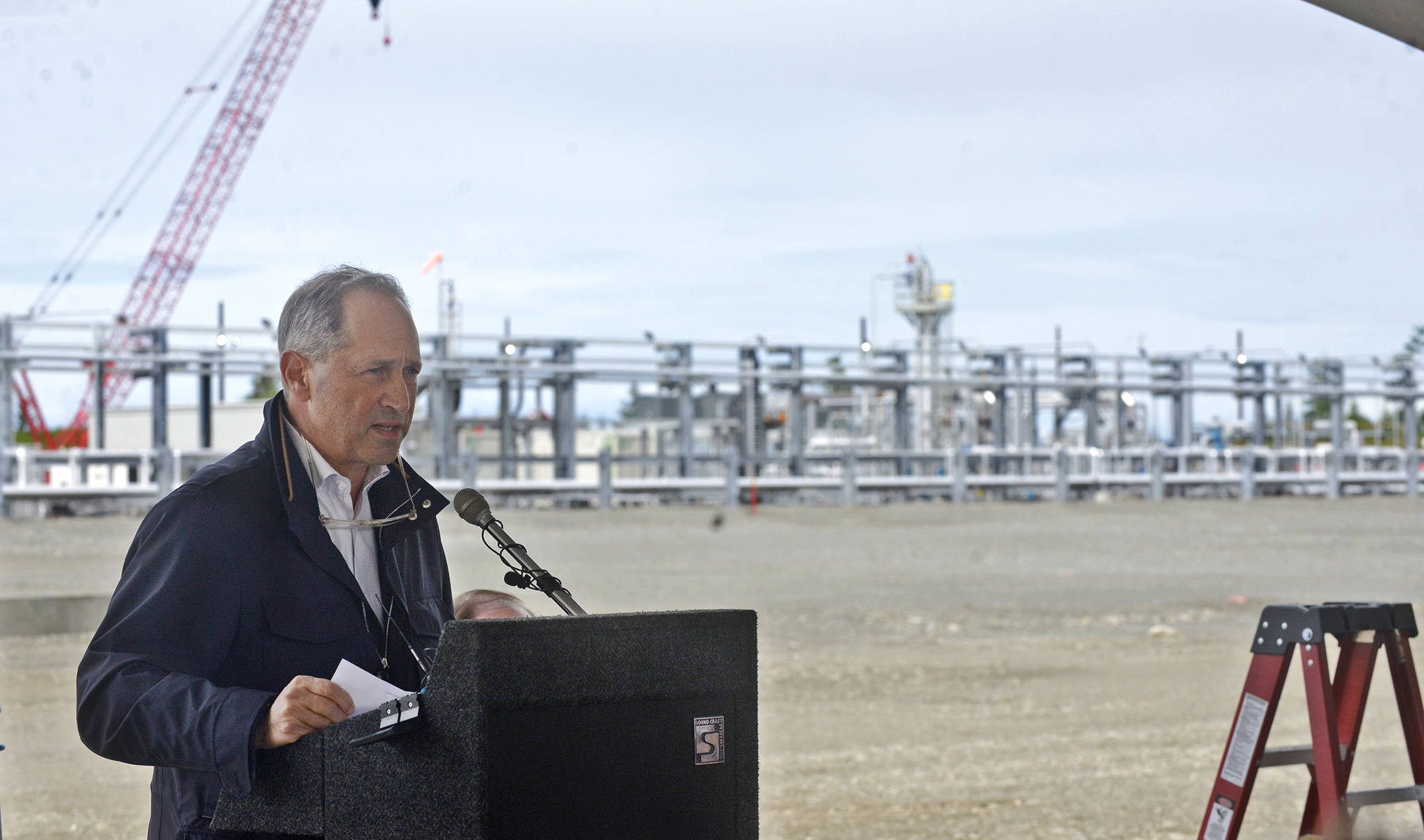BlueCrest Energy Inc. is preparing to pause drilling work at its Cook Inlet oil development because the State of Alaska owes the company about $75 million in refundable tax credits, but CEO Benjamin Johnson said he hopes the hiatus will be short-lived.
Fort Worth, Texas-based BlueCrest is the sole owner and operator of the Cosmopolitan oil project on the edge of the Inlet near Anchor Point on the Kenai Peninsula.
The company is currently drilling a lengthy production well, which is close to done and should be ready to flow oil sometime in September, Johnson said. Once that well is done and mechanical repairs are made to the first well BlueCrest finished drilling early this year, the company will be forced to suspend drilling operations until alternative financing can be secured.
That will impact the roughly 300 BlueCrest and contract drilling employees that are currently working at the site, according to Johnson, but he hopes only temporarily.
“We were hoping we could squeak by and make it without any additional tax credits; we’re working to try and avert that (drilling stoppage),” he said in an interview. “Hopefully in the best case we’re pausing briefly, only for a month or two, on the drilling. It might be longer; we just don’t know.”
The state has paid BlueCrest $27 million in tax credits since the company purchased the project in 2012, but the company now holds about $75 million in refundable credit certificates and expects to earn another $15 million for eligible drilling and development work done at Cosmo before July 1, Johnson added.
The Legislature passed House Bill 111 July 15 with a retroactive effective date end the North Slope and Cook Inlet oil and gas tax credit programs July 1. Gov. Bill Walker signed HB 111 into law July 27.
With drilling work and production facilities, Cosmopolitan is about a $525 million project overall, he said further, meaning the company has invested about $400 million of private capital.
Walker has taken significant heat from industry representatives and many Republicans in the Legislature for vetoing a total of $630 million of tax credit payments in 2015 and 2016, contending the state could not afford to spend the money and further drain savings dwindling from years of ongoing budget deficits in the $3 billion range.
The governor has also said repeatedly he would be willing to start paying off the obligation as soon as the Legislature passes a plan to resolve the deficits and put the state on more solid financial footing.
However, it was some of those same Republicans in the Senate that proposed the immediate end to the program. And this year the Legislature appropriated just $77 million — the statutory minimum — to pay down the $700 million-plus obligation.
Walker sponsored legislation passed last year to phase out the credits in Cook Inlet over several years, but HB 111 finished off the program sooner.
Also because of unpaid tax credits, BlueCrest also received modifications last December to a $30 million loan it took out with the state-owned Alaska Industrial Development and Export Authority for its powerful drilling rig with a 30,000-foot reach.
The AIDEA board of directors unanimously approved the minor loan changes. Johnson said his company will have no problem making the monthly payments on the loan, noting the rig — presumed to be the largest onshore drill in the state — has a value far exceeding the loan amount; AIDEA also has exclusive title to the rig, according to loan documents, which cost about $40 million to build and get to Alaska.
BlueCrest and other companies holding oil tax credits could sell their certificates at a reduced rate to the large North Slope producers that could use them against their own production taxes, but the viability of that market is unclear, particularly given low oil prices have dramatically cut down on producers’ state net profits-based production taxes.
While his company is trying to move ahead on further drilling with or without the credits, Johnson said they were imperative in drilling the company’s first $45 million offshore well in 2013 that proved up the Cosmo field.
The above ground portion of BlueCrest’s Cosmopolitan project is onshore; however the angled oil wells are aimed at an oil pool that is about three miles offshore and 7,000 feet underneath Cook Inlet.
BlueCrest is currently producing less than 200 barrels of oil per day from a previous exploration well drilled by ConocoPhillips in 2001. That well has mechanical plugs that have prevented additional oil flow, according to Johnson.
The well completed early this year also needs repair after a service company’s part broke, he said, and that work should be done fairly quickly with the rig after the current drilling is finished.
When the two new oil wells come online Johnson said they should each exceed the 1,000 barrels per day of production the company originally expected.
He is clearly excited about Cosmo’s potential, saying there is enough oil to continuously drill there for at least seven years.
“We’ve drilled all the way across the reservoir and we have confirmed that literally every inch of it is productive — is good rock, has oil saturation — so it’s just a matter of getting these wells to flow the oil out,” Johnson said.
“There are many hundreds of millions of barrels of oil in the ground, absolutely confirmed. The question is what percentage of that do we get and how fast will it come.”
The Cosmopolitan field also contains a large natural gas cap, but limited local demand and shifting state tax policy have delayed BlueCrest’s plans to develop it via an offshore platform, company officials have also said.
Elwood Brehmer can be reached at elwood.brehmer@alaskajournal.com.

